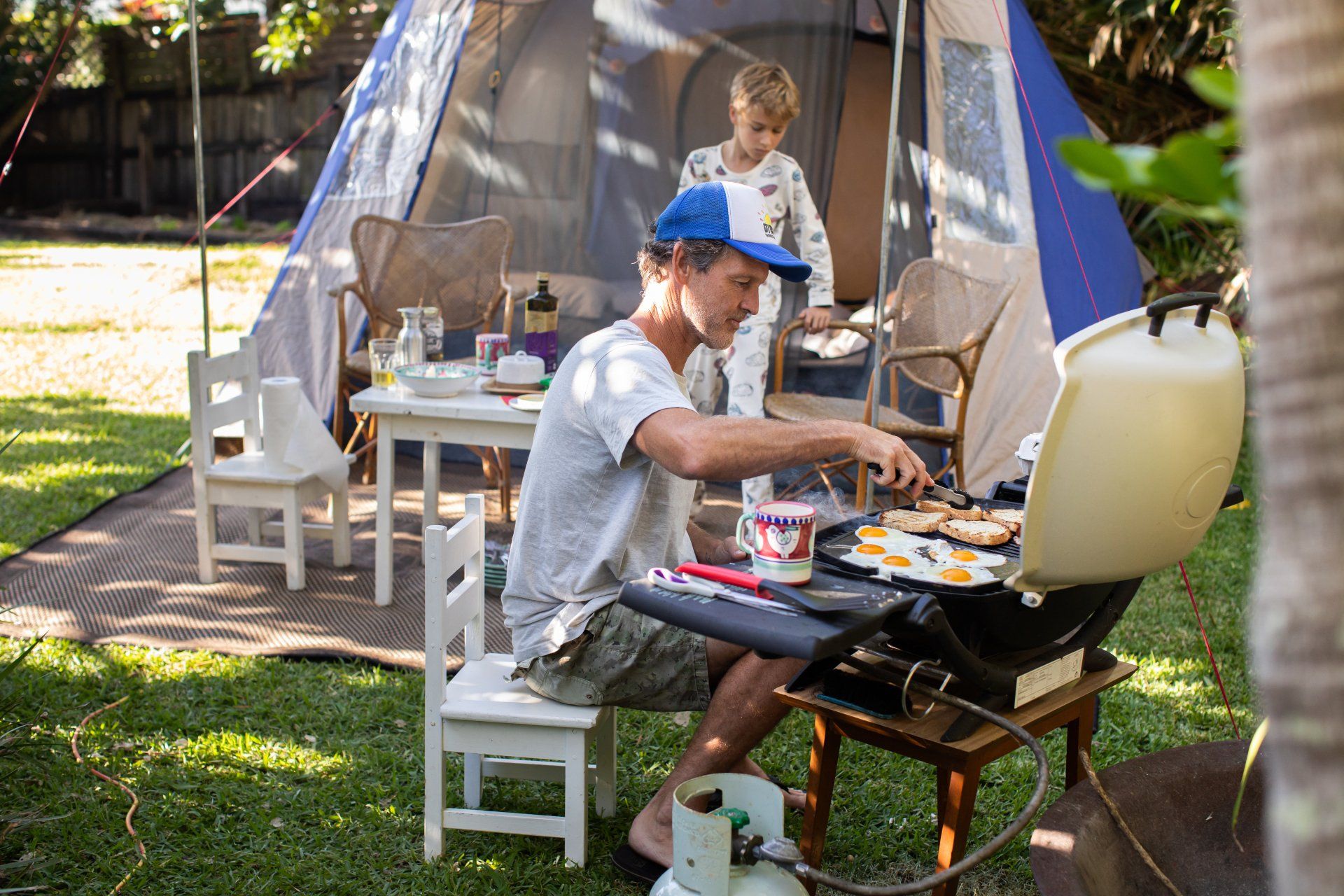Camping With Propane
Camping with Propane!
Propane is a useful fuel for many purposes, and its use in camping is no exception. Propane’s core strengths lend themselves very well to the outdoors and also allow for greater space efficiency and mobility than you’d see from similar sources of fuel. When it comes to camping, propane is most often used for cooking, but it can also be used for powering generators and other electronic devices like space heaters. We’ll cover how to safely travel with propane and how to best use it to power your camping adventures.
Transporting propane cylinders can be a bit risky if the cylinder is mishandled, but there are steps to mitigate this risk. First off, it’s important to make sure your tank is completely closed and in good shape before storing it in a vehicle. This applies even if the tank is empty. Doing so ensures that no propane gas will leak out. It’s often best to check the status of your tank routinely by taking bubbles or soap and coating the nozzle and outside surface of the tank with the substance. If you see bubbles continuously forming from a spot on the tank, you can pinpoint that there is leaking gas coming out and should usually consult a specialist or buy a new tank if this occurs.
Secondly, you’ll want to make sure that the propane tank is secure and upright when you store it. For instance, you can place one on the ground between a front and back seat or strap it into a truck bed. The goal is to reduce the amount of movement the tank undergoes and keep it upright in order to make sure the internal pressure of the tank stays consistent. This also applies to handling a propane tank. It’s best to be gentle with it and not to throw it around or roll it.
Finally, you’ll want to keep another factor in mind when working with propane tanks: temperature. Propane is a flammable gas that can combust under heat and pressure. For this reason, you’ll want to travel with your tank in a well-ventilated area such as the interior of a car with the window cracked. When not on the road, propane should be kept out of direct sunlight. Tanks also shouldn’t be stored inside of a vehicle that doesn’t have temperature control. The best option is usually to store your tanks outside in a shady area such as under a table or tree. This will help to mitigate rising temperatures in the tank and thus reduce risk.
Now that we know how to travel with propane, we can focus on its utilization in the outdoors, and that most often involves camping stoves. Most stoves made for camping work well with 16 oz canisters and a standard adapter, but, if you plan ahead, some camping stoves can be adapted to fit with standard 20 lb cylinders. This is important because small cylinders can run out over extended periods of time, and it’s best to have as much gas on hand and in one tank so that you don’t have to switch canisters or worry as much about losing efficiency to low tank pressure. Obviously a 20 lb tank may not be suitable for longer hikes, but it’s worth considering if your campsite is close enough to get the tank there.
Once you have your stove picked out and set up at your camping area, it’s time to hook up the gas and turn it on. The first step to this is to make sure the stove is cranked down. This insures that gas won’t flow from the tank when the hose is attached. Next, you’ll use your hose to hook the propane tank into the camping stove. Once the two ends are securely fastened, you can open up the tank and turn up the gas. Finally, light the gas on fire with a long-tipped lighter, and you have yourself a working source of fire, ready to cook some tasty food for you and your friends. When you’re done, just do things in reverse by cutting the gas off from the stove and closing the valve on the tank.
And there you have it, a personal source of fuel and warmth that can go wherever you do. As long as you’re smart about handling your propane, you should be able to safely harness it in the great outdoors as you bring energy wherever you go. Many other propane products use similar steps to run off of the fuel, but it’s always best to do research on the best practices for each. Propane is a space efficient and ecologically superior fuel to many other options, and utilizing it effectively can greatly enhance the outdoor experience.
Happy camping!
